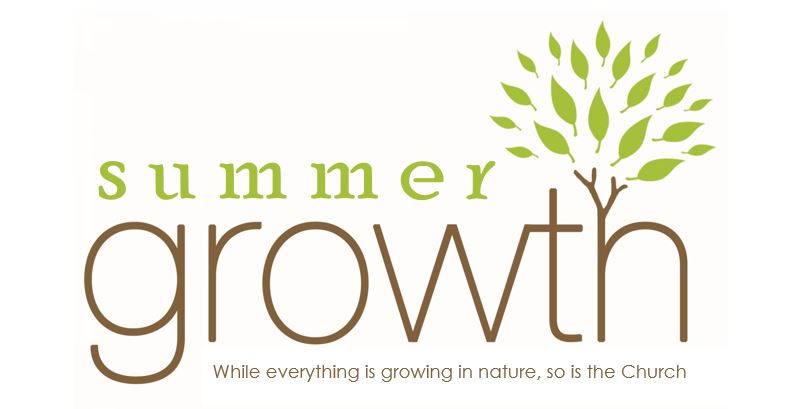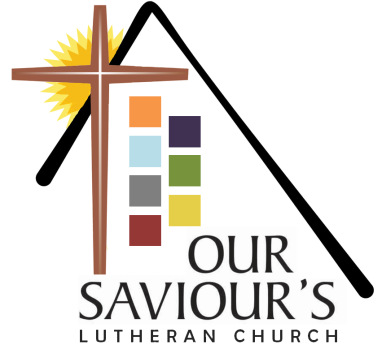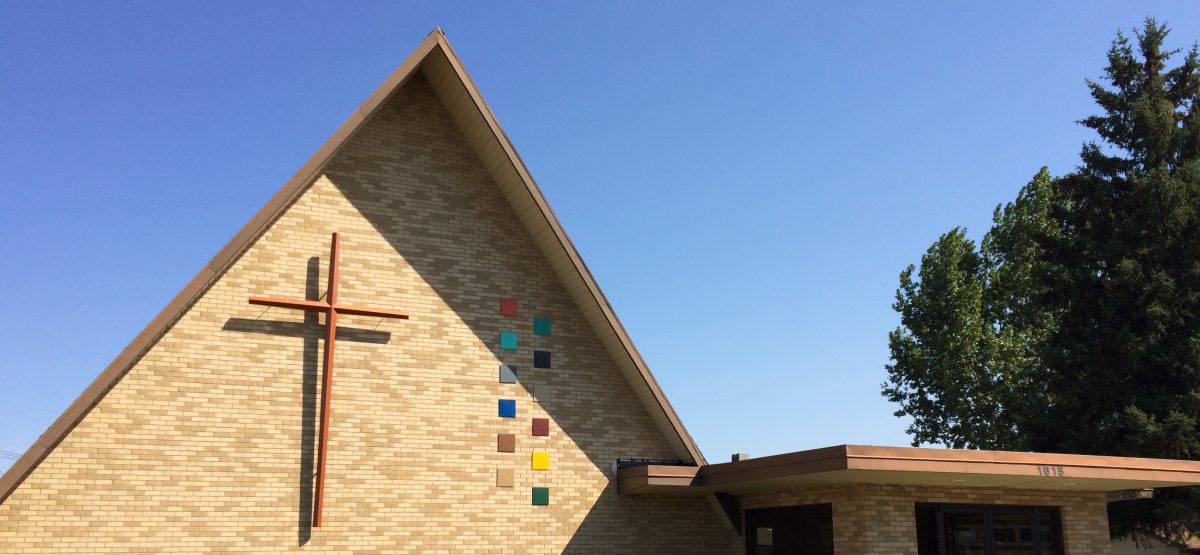
Colossians 2:13-17
13 When you were dead in your sins and in the uncircumcision of your flesh, God made you alive with Christ. He forgave us all our sins, 14 having canceled the charge of our legal indebtedness, which stood against us and condemned us; he has taken it away, nailing it to the cross. 15 And having disarmed the powers and authorities, he made a public spectacle of them, triumphing over them by the cross.
16 Therefore do not let anyone judge you by what you eat or drink, or with regard to a religious festival, a New Moon celebration or a Sabbath day. 17 These are a shadow of the things that were to come; the reality, however, is found in Christ.
It can be a heavy load. People often say they “want to get out from under it.” It can stunt the growth that people want in their life. It can ruin the fresh optimism that many a college graduate possess. What am I talking about? Debt! For a lot of people debt is a dirty word with catastrophic consequences if you aren’t careful.
And it’s a word we need to talk about today because the Apostle Paul brings it up right there in Colossians 2, verse 14: χειρόγραφον, that is the hand-written certificate of indebtedness. A person who was in debt had to write this legal note with their own hand so that they knew the debt and its terms. This debt then needed to be repaid according to the terms. People might not have to write the debt notes with their own hands today, but there are still terms for the repayment.
So that’s one reason why so many people work so hard to get out from under debt. But it turns out that it is getting harder and harder to do. Turns out debt in America is a pretty serious problem right now. Here are some stats I found. The average American home carries $137,063 of debt. That can be credit card, a car, a house, a student loan. The average median income is about $59,000 per year. And you’re going to need that income, because we all know that debts need to be paid off. In order to pay off a debt you have to work… a lot. What other option is there? So, you work and maybe you get an extra job. Maybe you have to make some sacrifices: put that dream house, the vacation, the family plans on hold for a couple years. Debt has that kind of grip on people sometimes.
No wonder debts can cause some serious anxiety. No wonder America is one of the richest nations in the world, but the people are also some of the most unhappy. We make a lot of money, but we have plenty of things to spend it on. Most of the time it seems the money is already spoken for before people actually have it in their bank accounts. And we are told that is just the way it has to be. Contentment is not really part of the vocabulary anymore.
This is so consuming that not just bank accounts but lives are profoundly impacted. In premarriage sessions I bring this point up. One of the huge marriage stressers is finances. Debt can suck the life and enjoyment out of love to the point where people who were once so committed to one another and so selfless with each other become so self-seeking and combative that marriages break apart. Money or the lack of it gets in the way.
The harder you work, the more time and effort you put in to paying off debts, the more those other important moments in life are taken from you. When debt takes over like that, it can be a cruel slavery. Debt can be the death of freedom and love and joy and peace and hope. It can feel like the death of the life you wanted.
Now this talk about financial debt is pretty intense. It doesn’t have to be like this. Debt can be very manageable. There are a lot of resources that can help you plan and prioritize properly so that debt won’t overcome you.
But there is a debt that will always overcome. There is a debt that is so oppressive and nasty that it does take each and every life it touches. The Apostle Paul says it is a debt that “stood against us and condemned us.” That is not just a couple years of work. The debt Paul wants us to think about isn’t about working more hours and being smarter to pay something off. This debt that stands against us and condemns us is sin.
It’s possible to think that this debt is like any other, that you have to pay it off. Follow God’s laws and do the religious stuff because that is how you get out of the debt we have to God. There were people in Israel that saw it that way, people in Jesus’ and Paul’s day saw it that way, and there are plenty of religious people and churches that still promote this pay-off-your-own-debt system today.
And so you have people who read their Bibles, volunteer at their churches and in the community, post on social media, and all that kind of stuff thinking that they are addressing this debt of sin before God. We aren’t immune to that. The thought crosses your mind that a little bigger offering will get you a little more of God’s goodness this week, the church and religious Facebook shares means you are making up for the other couple hours you wasted online, and signing up to help with an event raised you up a couple levels in God’s book. It’s only natural to think that following God’s laws and doing good things means we are doing are part to pay off this debt of sin.
But how’s that going for you? Does it feel like you are getting out from under that load? Or is the repayment process so constant and so crushing that there is no joy and no freedom? That’s probably because this repayment method of following laws and doing good works was not the way God intended to save you from sin.
To all those people in Colossae and to all the people who still think that the way to get out of sin’s debt is a personal repayment plan, Paul says that all of the Old Testament laws were “a shadow of the things that were to come…” A shadow gives you a faint glimpse of an object or person that is coming or going. It’s not the real thing. If you are walking with your earbuds in and you notice a shadow coming from behind you, you might think, “It’s someone who’s going to mug me!” “It’s a someone exercising a lot better than I am.” “It’s a bratty kid messing around on his way to wherever bratty kids go in summer.” “It’s a friend meeting me for our morning walk.” There are a lot of possibilities when it’s just the shadow, but you don’t know. Then, when you turn and see it was the mailman on his morning route, do you keep thinking it’s am mugger or a kid or a runner? Do you continue to look at the shadow and only the shadow? NO! You have the real thing.
All of those Old Testament laws were the shadow, not the real way to pay for sin. God was pointing people ahead to the way God had planned to deal with the debt of sin. God would make the payment himself. That’s the reality. This debt of sin cannot be paid off by the work of sinful people. Sinful people will only make more debts.
In fact, as Paul says, sinners can’t do anything for this debt. Look at the beginning of verse 13, “When you were dead in your sins…” The dead can’t pay off anything. They can’t do any work. They can’t make payments to God. If that is the case, we need someone else to make the payment. We need someone else to cancel it. We need someone else to forgive the debt of sin completely.
“When you were dead in your sins and tin the uncircumcision of your flesh, God made you alive with Christ. He forgave us all our sins, having canceled the charge of our legal indebtedness, which stood against us and condemned us; he has taken it away, nailing it to the cross.”
That’s the work that counts. The law could never do that for us. The shadow is not the real thing. The law can just show us the kind of payment that is necessary. It’s perfection. And God’s law does a really good job of showing us that perfection is not in us and that we have incurred an unpayable debt. With that debt of sin there is no joy, no freedom, no peace, only death. God knew that you and I could not do the work and keep up with the payments. So, Jesus stepped in.
The load of our debt, he carried. The crushing and suffocating weight of our iniquities, he bore. The death my sins have earned, he endured. The hand-written certificate of debt that you and I have written again and again to God, Jesus took. He reached out his hands and made the payment. That’s the reality.
And that’s the rest we have through faith in Jesus. Jesus died for our sins and then he rose so that we have a something other than death. We have life with him, Paul says, a life without worries, a life without fear, and a life without work. Now that’s the freedom and peace and joy and hope we are looking for. That’s the freedom and peace and joy and hope we could never work for. It has been given to us freely by a gracious God.
But let’s be clear about this life we have. It’s not free from God but free with God. It’s not rest from God but rest in him.
Not surprisingly there are religious teachers and churches saying that if your debt of sin is completely canceled by Christ, then that means you get to enjoy freedom in any way that makes you happy. You should experience your passions and desires in your own individual way with no one telling you that you are wrong. And that makes plenty of sense in a world that is all about pursuing your own personal happiness.
But your own personal happiness has changed now. It’s not about serving yourself. This new life in Jesus makes you realize that serving yourself gets you nowhere, because doing all that work to pay off your debt is not an option before God. It’s not about you. So that also means thinking that God has paid of your debt to give you the freedom to pursue anything that makes you happy is far too selfish. That would exclude Jesus from your life, because he could never agree to such self-serving pleasures. He would never want you to go running back headlong into the debt that he saved you from.
See, we are alive with Christ. We follow him. We serve with him. We love like him. It changes the way we look at happiness and freedom. He has given us rest from the overworked slavery to paying off our debt to sin. He has given us rest from the selfish relaxation of fulfilling all my desires and pleasures.
Instead, we are alive with Christ. That’s where we have peace and joy. The debt is gone. The payment has been made. We have a free place in heaven where we will live with Christ. And while we live here on earth it’s no different. We live with Christ. We live with his rest. Rest that is found in his Word, in his house, in his sacraments, with his people.
This is the rest we have in Christ. As this rest in Christ causes growth in your faith and in your life this summer. Don’t be shocked if you notice some people in your life who could use some rest from their debt repayment or from their lost selfishness. But you know how to put that to bed. Give them rest in Jesus. God grant it. Amen.

